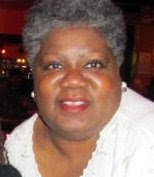Do You Have A Faith God Can Trust?
How many times have we felt persecuted because we were going through adversity? "Why me, Lord? Whatever I did, I promise not to do again!" We forget that it is through trials/adversity that the metel of our character and spirit are proven.
Consider the story of Job. Satan is going to and fro in the earth seeking whom he may devour and God offered him His servant, Job, with the caveat that he could do whatever he desired except kill him. God told the adversary that he could not take Job’s mortal life.
We know the story…
Job lost everything. He lost his real estate. He lost his cattle. He lost his children. He lost his health. Job was in such sad shape, sitting in ashes with skin boils oozing, that his wife begged him to end his misery, curse God and die.
We know the story…
Job’s response is legendary. He said to his wife, “Though He slay me, yet will I trust Him.” God has trusted Job with trouble. Job’s faith has been thoroughly tested and has not been found lacking.
Someone reading this has been going through a horrid season of adversity. So much so that you’ve seriously considered throwing in the towel and giving up. You're in a serious hurt locker and you're crying out to God who is not answering. Sister or Brother, you're in a test! The teacher doesn't talk or answer questions when you're taking a test. Know that you're not alone. God has not left the room! Don’t forfeit your victory at the :59 minute! The alloted time for this test is nearly over. Your tribulation clock is about to strike VICTORY!
The Word says that your trials come to make you strong. The Word says that if God has trusted you with trouble and you’ve been proven faithful, consider your trial a setup for increase. Promotion is just beyond the horizon of daybreak. START SHOUTING!!!
Don’t take my word! Hear the Word of the Lord spoken through the apostle, Paul:
There's more to come: We continue to shout our praise even when we're hemmed in with troubles, because we know how troubles can develop passionate patience in us, and how that patience in turn forges the tempered steel of virtue, keeping us alert for whatever God will do next. In alert expectancy such as this, we're never left feeling shortchanged. Quite the contrary--we can't round up enough containers to hold everything God generously pours into our lives through the Holy Spirit! ~ Romans 5:3-5, The Message
When going through trouble, we have to shout praise. David and his men came returned to Ziklag from warring with the Amalekites to find Ziklag burned to the ground and the women and children carried off into captivity. Their grief was inconsolable. The people were so overcome that they talked of stoning David. Yet the Scripture says:
“And David was greatly distressed; for the people spake of stoning him, because the soul of all the people was grieved, every man for his sons and for his daughters: but David encouraged himself in the LORD his God.” ~ 1 Samuel 30:6, KJV
As David encouraged himself through praising his God, his joy returned. And with joy came strength. And with strength came victory.
If God has trusted you with trouble, don’t wait until the battle is over. SHOUT NOW!
SHOUT because He has found you worthy!
SHOUT because when you come out on the other side victorious, like Job (42:10), you will reap a bountiful harvest if you faint not.
SHOUT because the mess you came through will become your message. And from your message, God will add to your ministry because you proved to God that your faith could be trusted.

